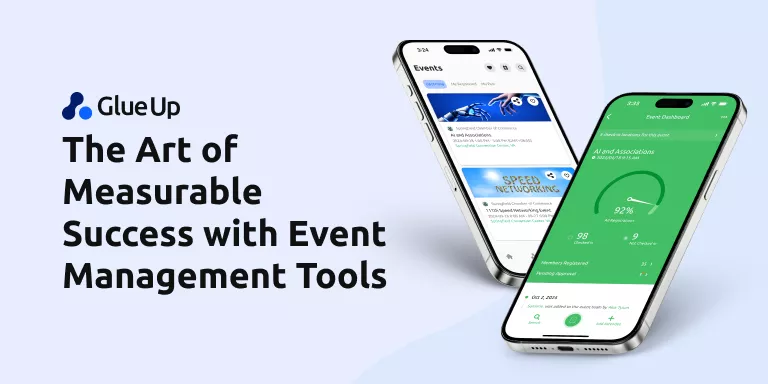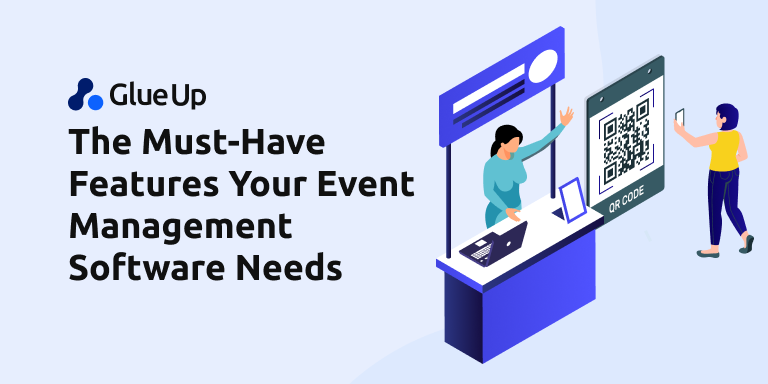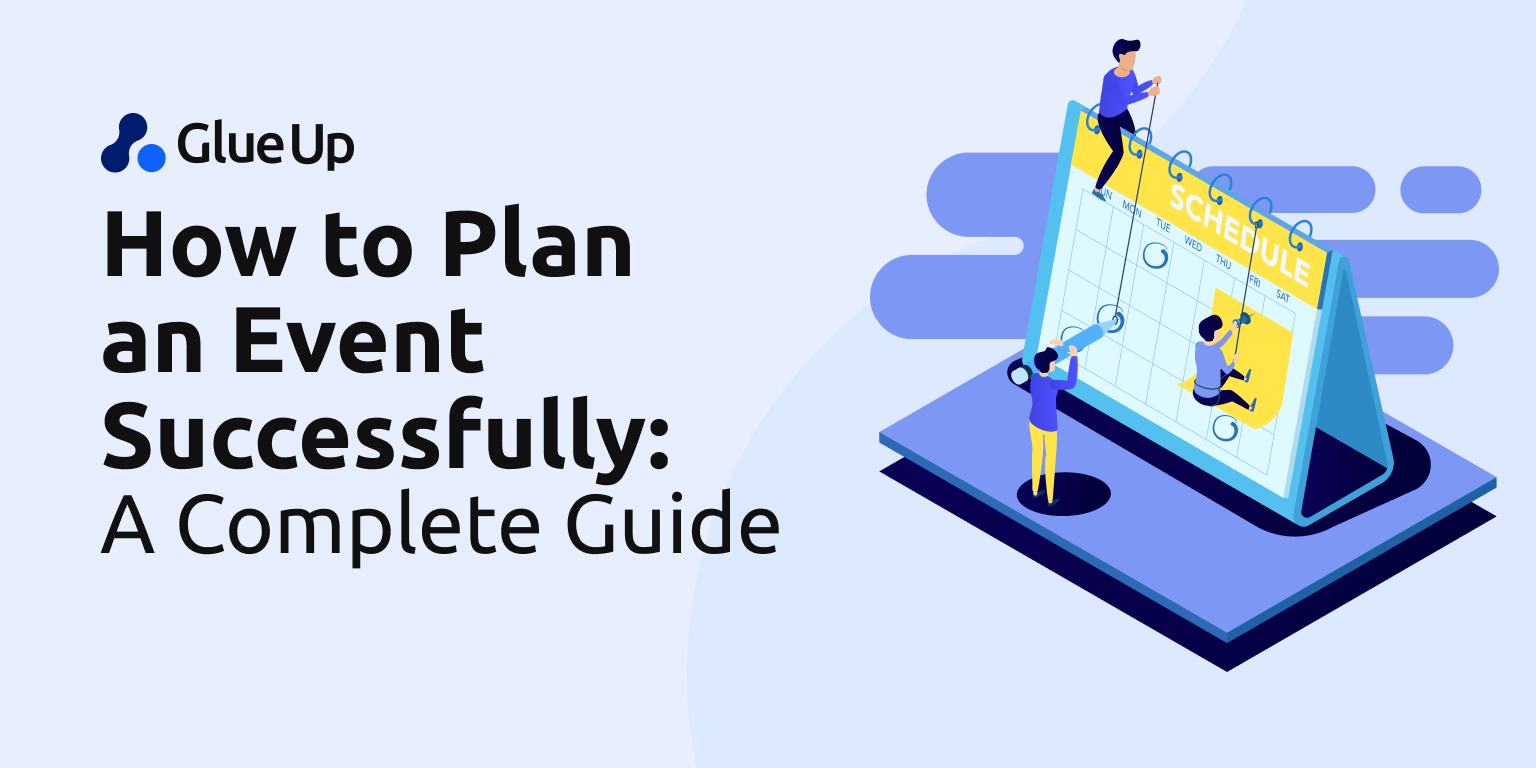
83% of marketers say events are critical for business growth, which shows just how important they are. Events aren’t something you can take for granted. Successful events require careful planning and attention to detail from start to finish to deliver results and support business growth.
Proper planning is central to making sure your event runs smoothly and achieves its objectives. To secure success, confirm that every aspect is planned correctly, from setting goals to managing logistics and promotions.
Even if you’re unsure how to start, this blog will guide you step by step and help you organize events that drive growth and leave a lasting impact.
Set Clear Objectives Before Planning
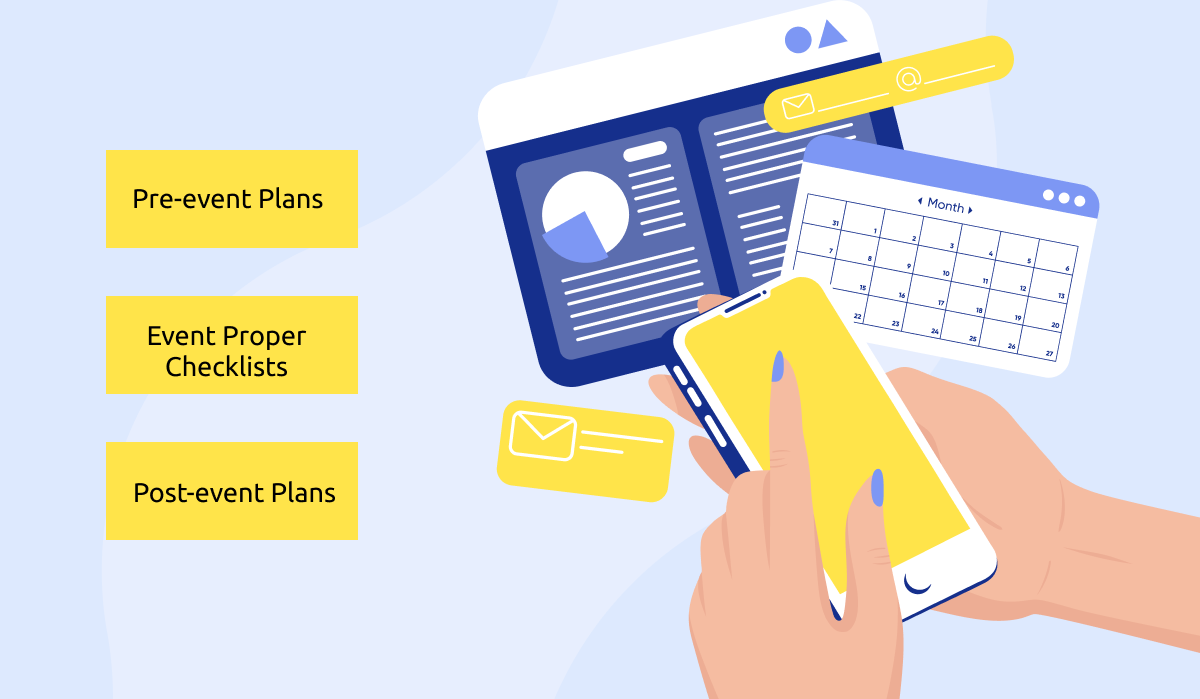
Defining your objectives is the first step in organizing a successful event. Objectives act as a roadmap and guide decisions on budget, promotions, and attendee engagement.
Suppose you aim to attract new members, increase sponsorships, or boost brand visibility. Clear objectives ensure your event stays aligned with your organization’s overall goals.
Here’s how to set effective objectives:
- Be Specific: Clearly define measurable outcomes such as registration numbers, member sign-ups, or revenue targets.
- Align with Organizational Goals: Confirm that the event contributes directly to broader strategic goals, such as membership growth or brand awareness.
- Set Realistic Expectations: Ensure objectives are achievable within the given resources and timeframe to avoid over-commitment.
Setting clear objectives keeps your event on track and also allows you to evaluate its success effectively. When goals are well-defined, planning each element becomes more efficient, leading to better results.
Create an Actionable Event Plan

An actionable plan serves as the backbone of your event. The event plan breaks down tasks into manageable steps and confirms that nothing gets overlooked.
A lack of detailed planning can result in confusion and delays, even from minor missteps. To create an effective event plan, focus on the following key elements:
- Define Milestones and Deadlines: Set clear timelines for important tasks like venue booking, promotions, speaker confirmations, and attendee registration.
- Assign Responsibilities: Make sure each team member knows their role and deliverables to avoid last-minute chaos.
- Budget Allocation: Break down costs for venue, catering, marketing, and logistics, and monitor spending to prevent overshooting your budget.
- Identify Potential Risks: Outline possible risks, such as vendor cancellations or low attendance, and develop contingency plans to address them.
- Choose the Right Tools: Use event management software, such as Glue Up, to track progress, manage communication, and centralize event-related data.
Choose the Right Event Management Tools
Once the plan is created, the next crucial step is execution, and event management tools play a major role in this process. Selecting the right tools is essential because they can either drive success or create obstacles.
The right event management software simplifies planning, monitors progress, and centralizes tasks to prevent missed deadlines or miscommunication.
Here’s what you should consider when choosing tools for your event:
- Comprehensive Features: Look for tools that cover key aspects of event management, i.e., registration, attendee tracking, payment processing, and post-event surveys.
- Customization Options: Confirm that the tool can be customized to your organization’s specific needs, such as registration forms, email templates, and event pages.
- Integration Capabilities: Make sure the tools integrate seamlessly with CRMs, email platforms, and financial software to eliminate data silos and repetitive work.
- Real-Time Reporting: Access up-to-date insights on registrations, payments, and attendance to enable quick decisions and adjustments if needed.
- User-Friendliness: Choose software that is easy to navigate for both your team and attendees to minimize training time and reduce the chances of errors.
The right event management tools help save time, boost efficiency, and allow your team to focus on delivering an outstanding event experience.
Market and Promote Your Event Effectively
An event is only as successful as its ability to attract the right audience. Effective marketing and promotion confirm that your event gains visibility and engages attendees who contribute to its success. To promote your event effectively, you need to:
- Define Your Target Audience: Identify who you want to attend and tailor your messaging to their interests and needs.
- Leverage Multiple Channels: Use email marketing, social media, partnerships, and your website to create awareness and drive registrations.
- Create Engaging Content: Design promotional materials, blog posts, and videos that highlight the event’s benefits and key takeaways.
- Offer Early-Bird Discounts or Incentives: Encourage early registrations by offering limited-time discounts or exclusive access to certain sessions.
- Engage With Registrants: Keep your audience engaged with updates, reminders, and sneak peeks of what they can expect.
A strong promotional strategy increases attendance and makes sure participants are excited and engaged long before the event begins.
Manage Registrations and Attendee Experience
Effectively managing registrations and providing a positive attendee experience is key to the success of your event.
The registration process should be seamless, while attendee engagement should be prioritized to create lasting impressions. Here’s how to achieve both:
- Streamline the Registration Process: To avoid drop-offs, offer an easy-to-navigate online registration system with clear instructions and multiple payment options.
- Automate Confirmation and Reminders: Send automated confirmation emails and reminders to confirm attendees have event details and stay engaged.
- Provide Customizable Registration Options: To personalize their experience, attendees should be able to select sessions, workshops, or other preferences during registration.
- On-Site Check-In: Use digital check-in tools or mobile apps to speed up the process and minimize long queues.
- Deliver Value-Added Content: To enhance their overall experience, attendees should have access to event resources such as agendas, speaker information, and networking opportunities.
- Engage Through Interactive Elements: To make attendees feel more involved and connected, incorporate live Q&A sessions, polls, or networking opportunities.
Managing registrations efficiently and delivering a memorable experience will guarantee the success of your event and encourage attendees to participate in future events.
Monitor and Track Progress in Real Time
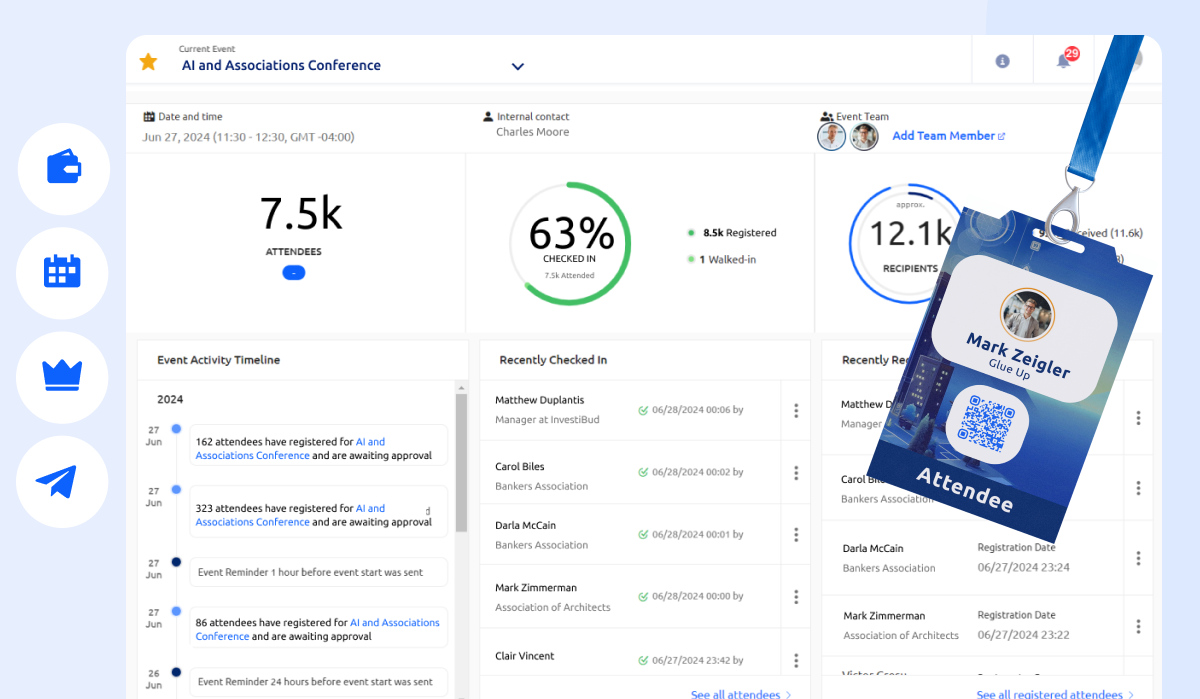
Keeping track of your event’s progress in real time helps you identify potential issues early and make timely adjustments. From registration numbers to attendee engagement, monitoring key metrics confirms that your event stays on course. Here’s what you can focus on:
- Use Real-Time Dashboards: Access live data on registrations, payments, and attendance through event management software to track progress instantly.
- Monitor Key Performance Indicators (KPIs): To measure success, focus on important metrics such as registration trends, no-show rates, session attendance, and attendee feedback.
- Stay Updated on Budget and Expenses: Continuously monitor spending against your budget to avoid unexpected costs.
- Track Attendee Engagement: Use in-event features like polls, Q&As, or chat functions to gauge real-time participation and satisfaction.
- Receive Instant Alerts: Set up automated alerts for any sudden changes or issues, such as low registration rates or delays, so that you can respond quickly.
Real-time tracking provides the insights you need to optimize event performance, make on-the-spot decisions, and deliver a successful experience for attendees.
Post-Event Follow-Up and ROI Measurement
Your event doesn’t end when the last attendee leaves. Post-event follow-up is important for nurturing leads, gathering feedback, and evaluating the event’s overall success.
Measuring return on investment (ROI) helps determine the effectiveness of your event and identifies areas for improvement. Here’s how to handle post-event follow-up and measure ROI effectively:
- Send Thank-You Emails: Express appreciation to attendees, speakers, and sponsors with personalized follow-up emails.
- Gather Attendee Feedback: Distribute post-event surveys to understand attendee satisfaction and collect suggestions for future improvements.
- Analyze Event Data: To measure success, review key metrics such as attendance rates, engagement levels, and lead generation.
- Evaluate Financial Outcomes: To calculate ROI, compare revenue from ticket sales, sponsorships, and other sources to expenses.
- Identify Leads for Follow-Up: Segment attendees based on their interactions and interests during the event for targeted post-event communication.
- Share Event Highlights: Post key takeaways, photos, or videos on social media and your website to maintain engagement and build anticipation for future events.
Proper post-event follow-up and thorough ROI analysis help you understand the impact of your event, nurture lasting connections, and refine strategies for future events.
Take Your Event Planning to the Next Level with Glue Up

Managing events can be challenging, but with the right tools, you can streamline planning, maximize engagement, and achieve measurable results. Glue Up’s event management features are designed to simplify every step of the process, ensuring your events are well-organized and deliver value. Here’s how Glue Up can help:
- Seamless Registration and Payments: Manage registrations, payments, and attendee data in one place, providing a smooth experience for both you and your attendees.
- Real-Time Analytics: Monitor registrations, attendance, and engagement with real-time dashboards that help you make informed decisions quickly.
- Automated Communication: Automated reminders, updates, and follow-ups keep attendees informed, saving time while maintaining engagement.
- Integrated Event Tools: Link event data with your CRM to gain a comprehensive view of attendees and ensure personalized and effective future outreach.
- Post-Event Surveys and Feedback: Collect attendee feedback effortlessly to measure success and identify areas for improvement.
Whether you’re planning large conferences or small member meetups, Glue Up ensures you have everything you need to deliver impactful events that drive growth and engagement.
Ready to elevate your event planning? Book a demo today and discover how Glue Up can transform your event strategy.

